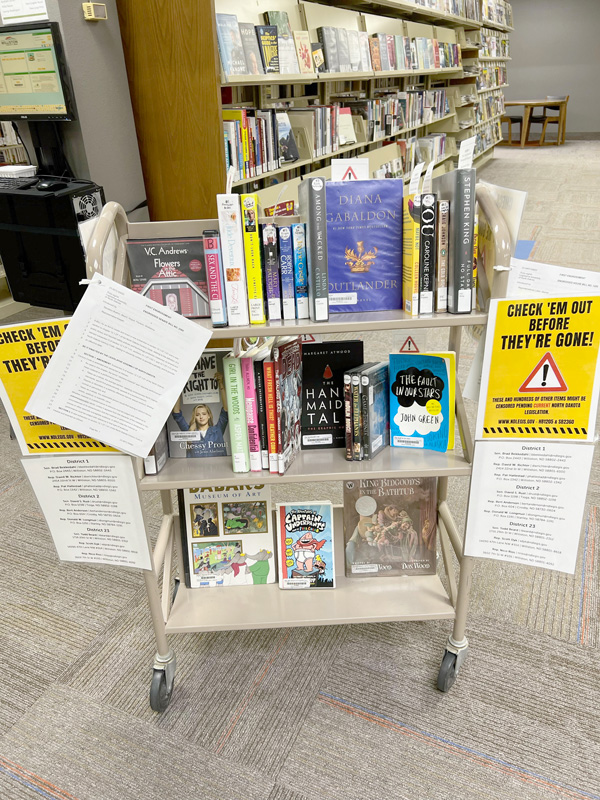
The state of North Dakota is one of many where lawmakers are targeting local libraries for the contents within. Right now, library workers are in an uncomfortable position regarding how these bills are presented. Library workers are tasked with upholding the First Amendment, the freedom of speech, by providing information to the community in various ways. This includes audiobooks, printed books, technology, and even programs. To most librarians, this means that when they come to work, they keep this work side of them separate. They are providing a service to the community and must leave their personal beliefs out of it.
Andrea Placher, the Library Director of The Williston Community Library, faces this very uncertain time for libraries. As a library representative, she feels these bills could lead us down a slippery slope. That slope is the vagueness of these bills. The language in them could be more specific. A sense of ambiguity in a bill such as this will ultimately lead to confusion that even lawmakers may not think of. Who is tasked with deciding what is allowed in the library and what is not, and is that from that person's personal opinion? Isn't this too subjective when it is not clarified in the bill? These are just some of the worries that the library staff has had on their minds since legislation introduced them.House Bill 1205 and Senate Bill 2360 are the two bills being voted on.
House Bill 1205 will ban public libraries from containing books with sexual material, including anything from depictions of deviant sexual intercourse, sexual intercourse, and any obscene material of the standards of the average North Dakotan person. The bill states that works of literary, artistic, political, and scientific significance could be exempt. The vagueness also does not cover whether it is only in young adult and children's books, which means that adult fiction will also be affected.
Senate Bill 2360 is very similar to 1205, except that it removes the exception for schools and libraries from the obscenity control law, meaning that library staff could be charged with a misdemeanor. This also adds in policies for digital and online resources offered by school districts and state agencies.
Most may not know that libraries have policies in place to protect different age groups from seeking books that may not be appropriate, and that is sectioning off the different age groups. At the Williston Community Library, the children's section is actually separated from other sections. There are policies in the library if someone deems a book inappropriate, in which the library director meets with the person to discuss. If it is not resolved, it goes to the Library Board of Directors. In the twelve years that Andrea has been in the library, there has not been a case to go to the library board. Most of the books in the library are also there at the community's request. She has always prided herself, and the library on being an open place of discussion when it comes to the library's contents and has always been supportive of keeping books that are inclusive to the entirety of the Williston community.
If these bills were to pass, thousands of books would likely be taken out of circulation. These books are all at risk, from romance novels in the adult section to books like Captain Underpants and Babar in the children's section. What's your favorite book? It may be on the list to be cut from your local library.

